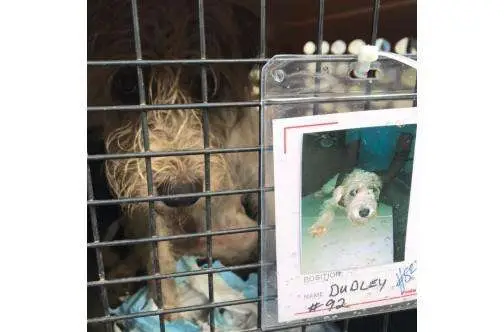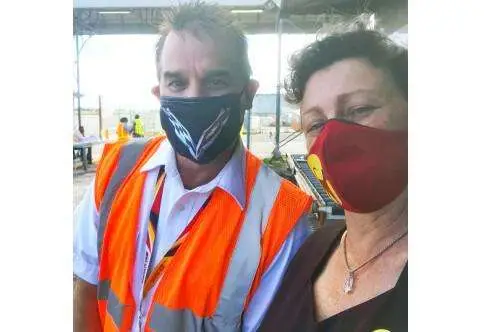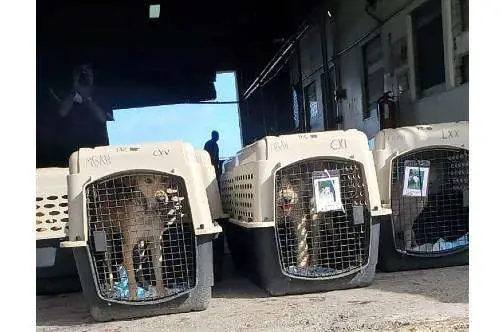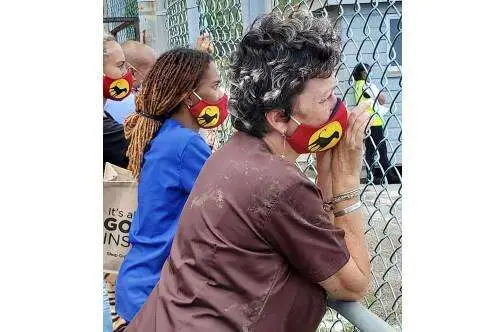
Thanks for saving the dogs
MONTEGO BAY, St James — Managing director of the Montego Bay Animal Haven Tammy Browne still cannot believe she managed to pull off the Caribbean’s largest-ever single exportation of dogs. And she is full of praise for all who helped her fly 144 mongrels from Montego Bay, on a specially arranged flight, to a better life in Canada.
“People are so happy for the dogs and I cannot believe we managed to pull this off. It is the first time in the whole Caribbean that so many dogs were sent off to another country. The dogs are all living in foster homes and we are so happy for them,” Browne told the Jamaica Observer.
The “doggie flight” left the island on March 13.
There is a long list of players who rallied to Browne’s aid when she hit hurdle after hurdle while trying to get the dogs overseas. This includes staff and volunteers at the shelter, the country’s national veterinarian, Fontana Pharmacy, Chukka Adventures, Super Valu Home Centre, and more.
It all began when Browne was faced with the harsh reality that she may have to euthanise half of her shelter’s dog population in order to navigate the effects of the on-going COVID-19 pandemic.
“We had about 300 dogs as people have lost their jobs and dogs were being kicked out because they just cannot care for them anymore. After the Christmas holiday, I called up our directors to tell them I just could not manage the number of dogs we had; I needed help. I was then told that my best option was to euthanise half of them,” she told the Observer West.
This, she said, was heartbreaking to hear, as it went against everything for which the Montego Bay Animal Haven stands.
“Every single [stray] dog that comes to us is nursed back to health so there was no way I was going to do that,” Browne said.
She decided to reach out to her friends Laura and Jenna Bye who run the Save Our Scruff Foundation in Canada. They were more than willing to accommodate the dogs, she said.
“They just did a transport of dogs from Mexico so they have helped a lot of dogs from overseas; not this amount, but they have done it before so I asked them if I could send 150 dogs and they were so excited to help,” she said.
The process to get the dogs to Canada was not without its fair share of difficulties, Browne said, as it seemed like “everything that could possibly go wrong was going wrong”.
“The air charter service called on Thursday to ask if they could reschedule for next Tuesday because the landing gear on the plane was not working. The trouble is, we couldn’t do it that way because we had to go through a lot of health protocols. The Government vets were involved and we could not reissue these health certificates for the dogs; they were very expensive,” explained Browne.
“They told us they could send another plane, but it would have been an extra US$15,000, and of course that was not even possible for us because we did not have that money,” she added.
After some calls to friends overseas and — with donations from people around the world — paying an extra US$3,000, the doggie flight left Sangster International Airport on Saturday, March 13.
“Government vet Dr Ikolyn Ricketts was amazing. When you want to take a dog overseas, it goes through a series of health checks by vets before you even get to the Government vet. Then the Government vet must agree with everything that your vet has said, as well as give an overall health assessment. So to do that for 144 dogs is a lot of work. And she was just brilliant,” Browne said.
“We had to borrow a tent from Fontana because the vet had to do the checks outside; it was just too hot inside. We, the staff, and volunteers, were up on Friday night, scrubbing out the crates and washing dogs. Transportation was provided by John Byles at Chukka because you just can’t transport that many dogs in a car, it is impossible, so we transported them in two different horse trucks,” Browne explained.
“Super Valu helped us out with the crates and we honestly could not have done it without them. Trying to source 150 crates anywhere in Jamaica is a difficult task,” she added.
Now that the shelter is down to a manageable number of dogs, it has shifted its the focus to population control. Browne explained that the shelter plans to organise a spay and neuter programme which will also go into communities across the island, neutering dogs owned by individuals who cannot afford the service and handing out dog food.
“We just want to educate and encourage families that own dogs. We found out through this, that everybody considers Jamaicans to be so cruel to animals and they are not,” she said. “In a lot of cases, they just do not have the finances to look after the animals, and we want to assist them.”



























